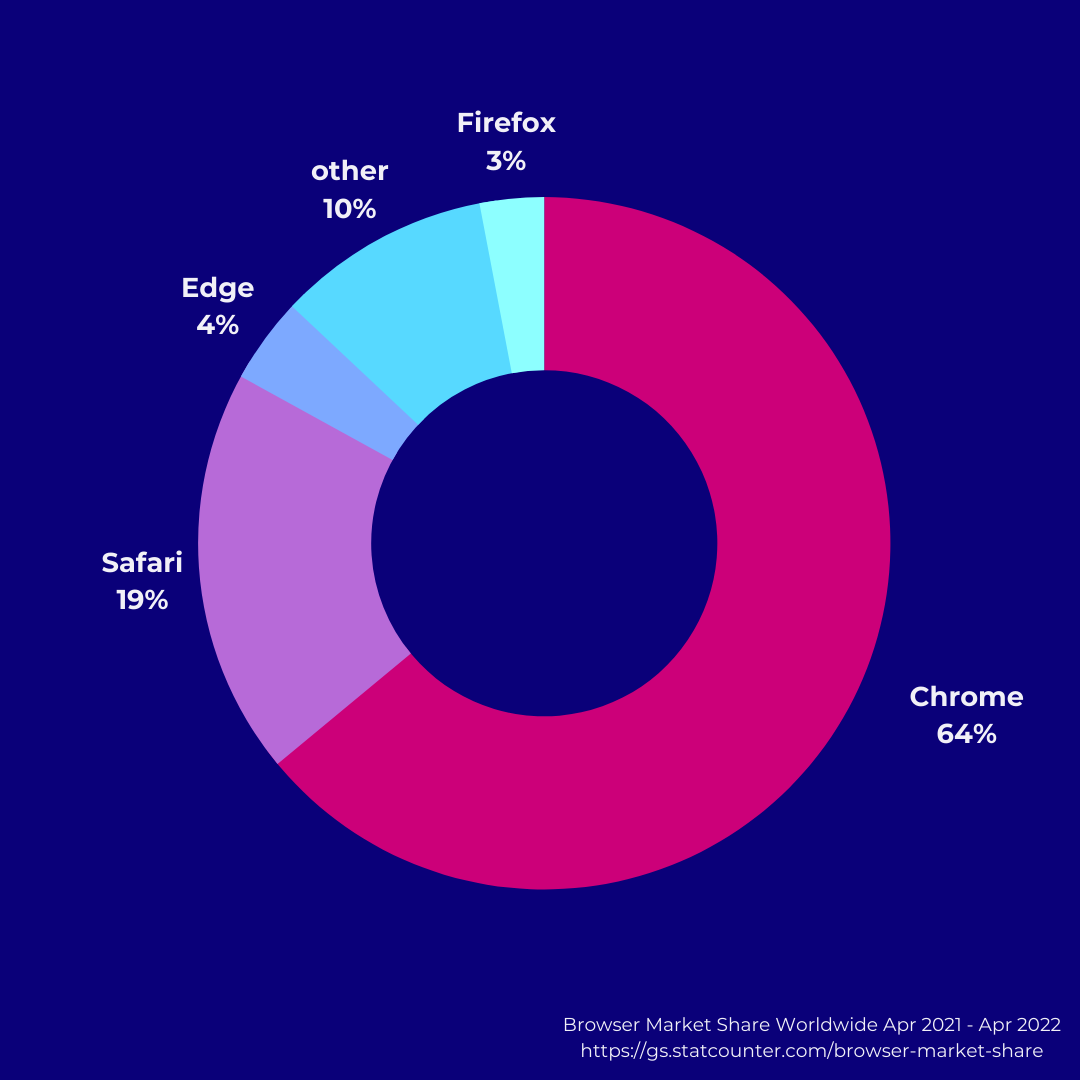Is this title too clickbaity for you? Sadly, I wish it was. The outlook is grim. Google is on the path to abolishing third party cookies. For the sake of privacy. But those closer to the matter will tell you something different.
What is Google’s plan for cookies?
Google has a grand plan to deprecate and eventually drop support for third-party cookies in late 2023. The Privacy Sandbox initiative is meant to improve user privacy while supporting developers and helping businesses thrive.
The Privacy Sandbox will replace third-party cookies in Chrome Browser with new standards. By removing third-party cookies, Google attempts to safeguard user privacy. Such a measure will quickly render predatory trackers pretty much useless.
Malicious tracking, user profiling and credential leaking will be a thing of the past.
If not cookies, then what?
First and foremost, Google is an AdTech company. The search, Android devices and a plethora of other services are means of harvesting a vast amount of data about us.
To continue offering targeted advertising, Google will need to analyze people’s browsing habits. Cookies or not.
Federated Learning of Cohorts
The first alternative to third-party cookies involves assigning users with similar browsing habits to the same cohort. The browser will then share the cohort identifier allowing advertisers to target their ads better. The proposal suggested that each cohort will encompass thousands of users.
Sounds innocent.
Until we unpack it:
- the cohort ID will identify your browsing habits,
- the uniqueness of cohort ID is not guaranteed, and
- every user of a browser supporting this new standard will automatically opt-in to tracking.
FLoC standard quickly died. The solution was ripe for abuse due to its far-reaching fingerprinting capabilities. It was also not very useful as the automatic assignment of cohorts to interests was very difficult and problematic.
Finally, it was illegal. Based on GDPR and similar privacy regulations, the opt-out nature of the standard meant it was doomed from the get-go.
The EFF shared a damning, in-depth report on FLoC, and why it was such a bad idea.
Google did not give up, though. Cohorts are no more. Say “Hi!” to Topics.
FLEDGE
FLEDGE stands for First Locally Executed Decisions over Groups Experiment. It could also be a cheeky word game where information does not leave the nest.
What it is, on the surface, looks like a positive step forward. First, Google suggests creating a fixed list of website categories. Around 300 of them, to be exact. Then, a browser supporting Topics API – technical implementation of FLEDGE, will enable advertisers to get classes of websites the user visited in the last 3 weeks. This mechanism will automatically share with the advertisers your interest.
Yet again, this approach is ripe for abuse.
- It will create an easy mechanism to promote filter bubbles and discrimination.
- Abusive implementation could collect user interest over a time longer than 3 weeks, thus creating an even more accurate profile.
- An interest in a specific category can be considered personal or even sensitive information requiring additional protection, not present in the standard.
And like with FLoC, the mechanism assumes that everyone is in until they explicitly opt out.
Danger. Danger. Danger.
Google Chrome holds around 64% of the browser market share. More than half of all Internet users access information, pay for services and buy goods using a platform under the control of a single company.

Google is likely deploying these measures to exercise the disproportionate power it yields by controlling Google Chrome. And, so far, all proposed measures centralize tracking in the hands of the browser operators.
What can you do as a user?
You can stop using Google Chrome and its derivatives. However, this might turn out to be prohibitively complex or undesired. Google Chrome is an excellent Internet browser. Loved by developers and designers worldwide.
Secondly, you can take extra care while reviewing browser settings, hoping you can disable these additional tracking mechanisms. And that subsequent updates will not invalidate your choices.
Thirdly, you can use opinionated extensions, like the one offered by DuckDuckGo.
What is an online business or marketer to do?
It is time that we part ways with third-party cookies as an industry. These should be considered extinct either thanks to browser evolution or regulatory pressure.
The AdTech industry will surely create a new solution to this problem. For example, a website operator could willingly notify the ad broker which interests are best represented for their audience. The online advertising industry is ripe for change and disruption.
For those wanting to understand their visitors and audience, a departure from tracker cookies is another challenge. Most of the platforms supporting marketers in analyzing traffic rely on cookies, often served by external SaaS systems. These, too, will become defunct.
That last group is in luck. Even today, solutions like Wide Angle Analytics offer cookieless, compliant traffic analytics. Cookies or not, modern web analytics platforms can derive meaningful insights from heavily anonymized traffic. Exposing trends and performance of online marketing activities.
While we are not doomed, there is some work and change of habits ahead of us. Luckily there are solutions, like DuckDuckGo and Wide Angle Analytics, ready to support all affected parties.
No Cookie Banners. Resilient against AdBlockers.
Try Wide Angle Analytics!



